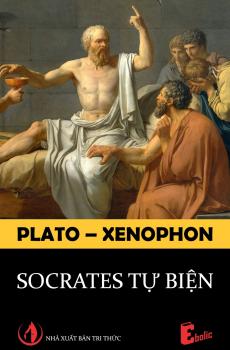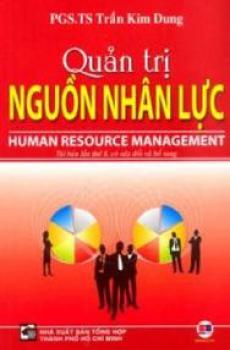The Psychology of Revolution
The Psychology of Revolution
Subject:
Psychology
Category:
Reference - Research
Format:
Braille All Contractions, Daisy Text, Epub
Log in to download this book.
| Publisher | Chưa rõ |
|---|---|
| Accessible book producer | Public domain |
| Published year | 1996 |
| Coppy right | Chưa rõ |
INTRODUCTION. THE REVISION OF HISTORY PART I
THE PSYCHOLOGICAL ELEMENTS OF REVOLUTIONARY MOVEMENTS
BOOK I
GENERAL CHARACTERISTICS OF REVOLUTIONS
CHAPTER I. SCIENTIFIC AND POLITICAL REVOLUTIONS 1. Classification of Revolutions 2. Scientific Revolutions 3. Political Revolutions 4. The results of Political Revolutions
CHAPTER II. RELIGIOUS REVOLUTIONS 1. The importance of the study of Religious Revolutions in respect of the comprehension of the great Political Revolutions 2. The beginnings of the Reformation and its first disciples 3. Rational value of the doctrines of the Reformation 4. Propagation of the Reformation 5. Conflict between different religious beliefs. The impossibility of tolerance 6. The results of Religious Revolutions
CHAPTER III. THE ACTION OF GOVERNMENTS IN REVOLUTIONS 1. The feeble resistance of Governments in time of Revolution 2. How the resistance of Governments may overcome Revolution 3. Revolutions effected by Governments. Examples: China, Turkey, &c 4. Social elements which survive the changes of Government after Revolution
CHAPTER IV. THE PART PLAYED BY THE PEOPLE IN REVOLUTIONS 1. The stability and malleability Of the national mind 2. How the People regards Revolution 3. The supposed part of the People during Revolution 4. The popular entity and its constituent elements
BOOK II
THE FORMS OF MENTALITY PREVALENT DURING REVOLUTION
CHAPTER I. INDIVIDUAL VARIATIONS OF CHARACTER IN TIME OF REVOLUTION 1. Transformations of Personality 2. Elements of character predominant in time of Revolution
CHAPTER II. THE MYSTIC MENTALITY AND THE JACOBIN MENTALITY 1. Classification of mentalities predominant in time of Revolution 2. The Mystic Mentality 3. The Jacobin Mentality
CHAPTER III. THE REVOLUTIONARY AND CRIMINAL MENTALITIES 1. The Revolutionary Mentality 2. The Criminal Mentality
CHAPTER IV. THE PSYCHOLOGY OF REVOLUTIONARY CROWDS 1. General characteristics of the crowd 2. How the stability of the racial mind limits the oscillations of the mind of the crowd 3. The role of the leader in Revolutionary Movements
CHAPTER V. THE PSYCHOLOGY OF THE REVOLUTIONARY ASSEMBLIES 1. Psychological characteristics of the great Revolutionary Assemblies 2. The Psychology of the Revolutionary Clubs 3. A suggested explanation of the progressive exaggeration of sentiments in assemblies
PART II
BOOK I
THE ORIGINS OF THE FRENCH REVOLUTION
CHAPTER 1. THE OPINIONS OF HISTORIANS CONCERNING THE FRENCH REVOLUTION 1. The Historians of the Revolution 2. The theory of Fatalism in respect of the Revolution 3. The hesitation of recent Historians of the Revolution 4. Impartiality in History
CHAPTER II. THE PSYCHOLOGICAL FOUNDATIONS OF THE ANCIEN REGIME 1. The Absolute Monarchy and the Basis of the Ancien Regime 2. The inconveniences of the Ancien Regime 3. Life under the Ancien Regime 4. Evolution of Monarchical feeling during the Revolution
CHAPTER III. MENTAL ANARCHY AT THE TIME OF THE REVOLUTION AND THE INFLUENCE ATTRIBUTED TO THE PHILOSOPHERS 1. Origin and Propagation of Revolutionary Ideas 2. The supposed influence of the Philosophers of the eighteenth century upon the Genesis of the Revolution. Their dislike of Democracy 3. The philosophical ideas of the Bourgeoisie at the time of the Revolution
CHAPTER IV. PSYCHOLOGICAL ILLUSIONS RESPECTING THE FRENCH REVOLUTION 1. Illusions respecting Primitive Man, the return to the State of Nature, and the Psychology of the People 2. Illusions respecting the possibility of separating Man from his Past and the power of Transformation attributed to the Law 3. Illusions respecting the Theoretical Value of the great Revolutionary Principles
BOOK II
THE RATIONAL, AFFECTIVE, MYSTIC, AND COLLECTIVE INFLUENCES ACTIVE DURING THE REVOLUTION
CHAPTER I. THE PSYCHOLOGY OF THE CONSTITUENT ASSEMBLY 1. Psychological influences active during the French Revolution 2. Dissolution of the Ancien Regime. The assembling of the States General 3. The constituent Assembly
CHAPTER II. THE PSYCHOLOGY OF THE LEGISLATIVE ASSEMBLY 1. Political events during the life of the Legislative Assembly 2. Mental characteristics of the Legislative Assembly
CHAPTER III. THE PSYCHOLOGY OF THE CONVENTION 1. The Legend of the Convention 2. Results of the triumph of the Jacobin Religion 3. Mental characteristics of the Convention
CHAPTER IV. THE GOVERNMENT OF THE CONVENTION 1. The activity of the Clubs and the Commune during the Convention 2. The Government of France during the Convention: the Terror 3. The End of the Convention. The Beginnings of the Directory
CHAPTER V. INSTANCES OF REVOLUTIONARY VIOLENCE 1. Psychological Causes of Revolutionary Violence 2. The Revolutionary Tribunals 3. The Terror in the Provinces
CHAPTER VI. THE ARMIES OF THE REVOLUTION 1. The Revolutionary Assemblies and the Armies 2. The Struggle of Europe against the Revolution 3. Psychological and Military Factors which determined the success of the Revolutionary Armies
CHAPTER VII. PSYCHOLOGY OF THE LEADERS OF THE REVOLUTION
1. Mentality of the men of the Revolution. The respective influence of violent and feeble characters 2. Psychology of the Commissaries or Representatives ``on Mission'' 3. Danton and Robespierre 4. Fouquier-Tinville, Marat, Billaud-Varenne, &c. 5. The destiny of those Members of the Convention who survived the Revolution














